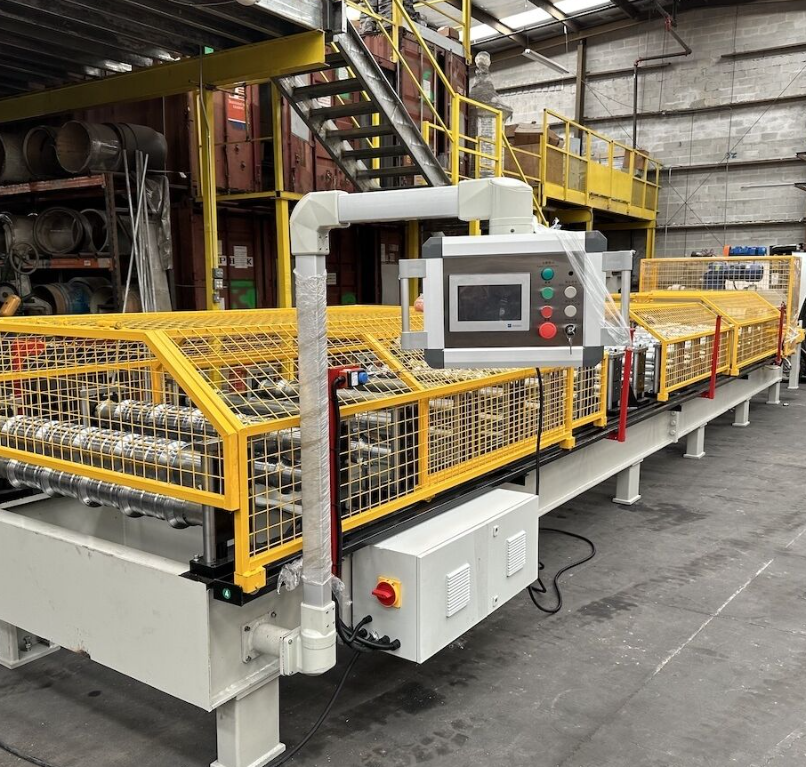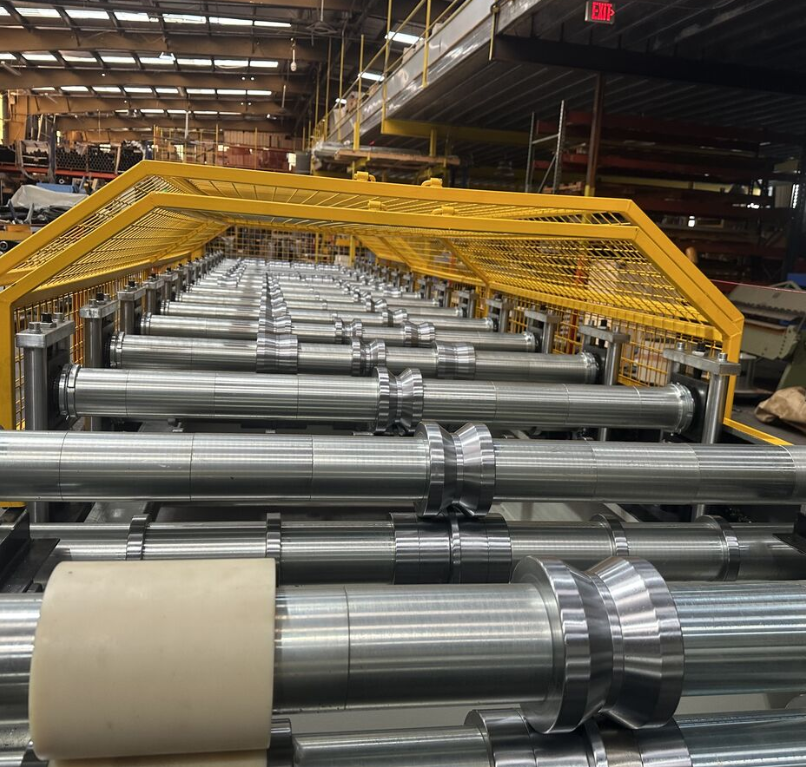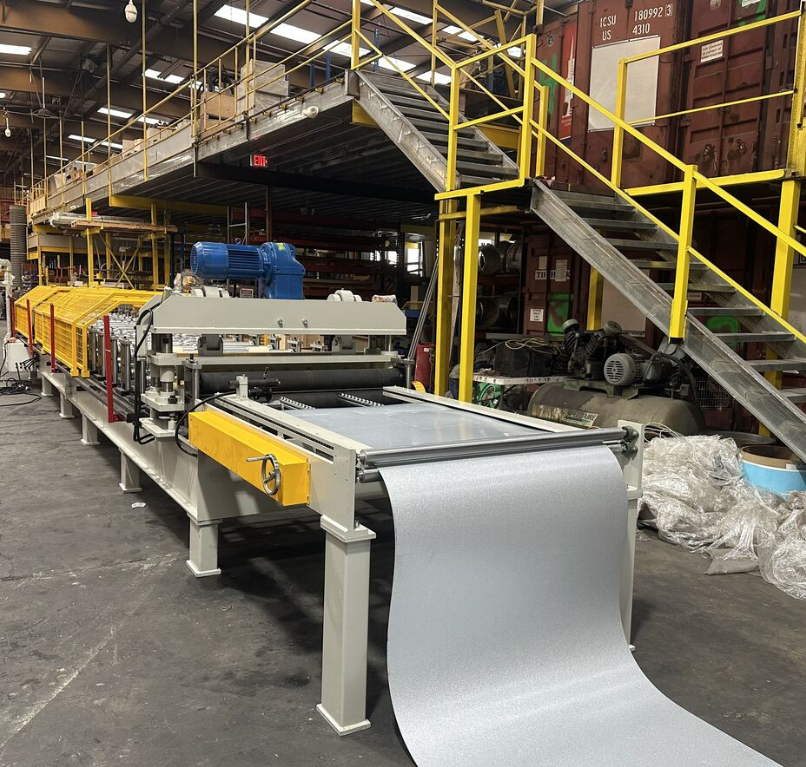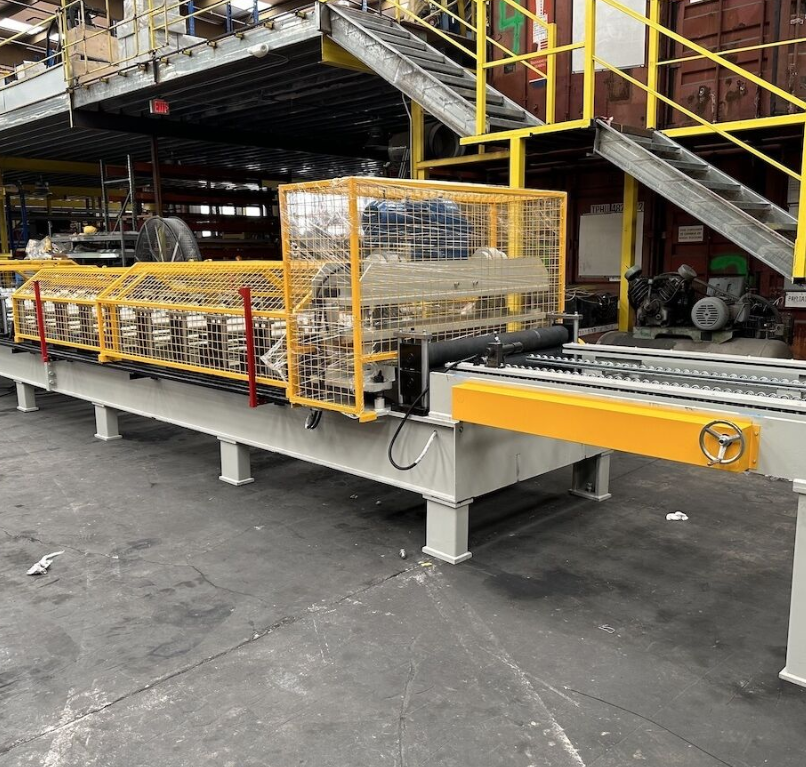To express an interest in this machine please submit the form below.

Not Sure What Machine You Need?
Select Your Profile, We'll Match It
Choose your desired profile drawing, and let Machine Matcher connect you with the best roll forming machine tailored to your needs.
Browse Profiles




The Galvalume metal roof roll forming machine is designed to produce high-quality, durable roofing panels using Galvalume-coated steel. This advanced machine is tailored for industrial applications, residential roofing, and commercial structures, meeting the growing demand for corrosion-resistant and energy-efficient metal roofing solutions in the USA.
The Galvalume metal roof roll forming machine is a robust, high-performance system engineered to produce panels with precision and consistency. It features cutting-edge automation, durable construction, and versatility to create various roofing profiles.
Key features include:
This machine is a preferred choice in the USA due to its adherence to strict safety standards and customization options for unique project requirements.
Q1: What is Galvalume steel, and why is it used for roofing?
A: Galvalume steel is a zinc-aluminum coated material known for its superior corrosion resistance and heat reflectivity. It is ideal for roofing because it withstands harsh weather conditions, resists rust, and provides energy efficiency.
Q2: Can the machine be customized for different roofing profiles?
A: Yes, the Galvalume metal roof roll forming machine can be customized to produce various profiles, including standing seam, ribbed, and corrugated panels.
Q3: Is the machine compatible with USA power standards?
A: Absolutely. The machine can be configured to work with the USA's 240V/60Hz or 480V/60Hz power supply standards.
Q4: What is the typical production speed?
A: The standard production speed is 10–15m/min. However, with servo motor and advanced PLC upgrades, the speed can reach up to 25m/min.
Q5: How long does it take to install the machine?
A: Installation typically takes 5–7 days, depending on the complexity of the setup and the availability of facilities at the installation site.
Q6: What maintenance does the machine require?
A: Regular maintenance includes cleaning the rollers, lubricating moving parts, inspecting the PLC system, and ensuring hydraulic oil levels are adequate. Periodic checks should also be done on electrical components.
Q7: Is technical support available in the USA?
A: Yes, many manufacturers and distributors provide technical support, including installation guidance, training, and after-sales service in the USA.
Copyright 2026 © Machine Matcher.